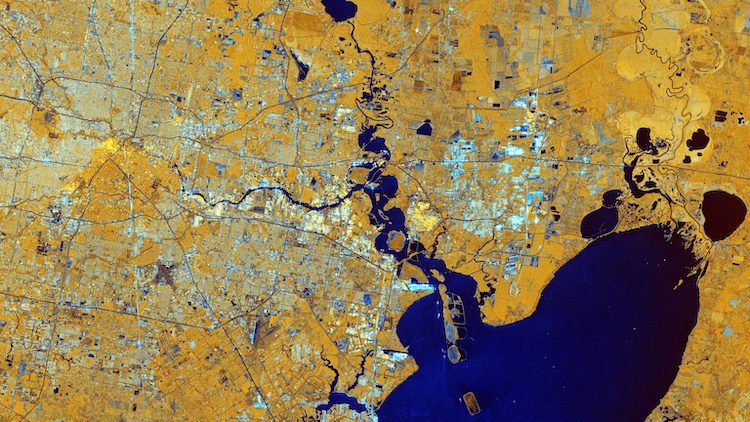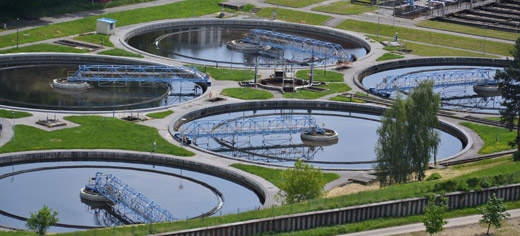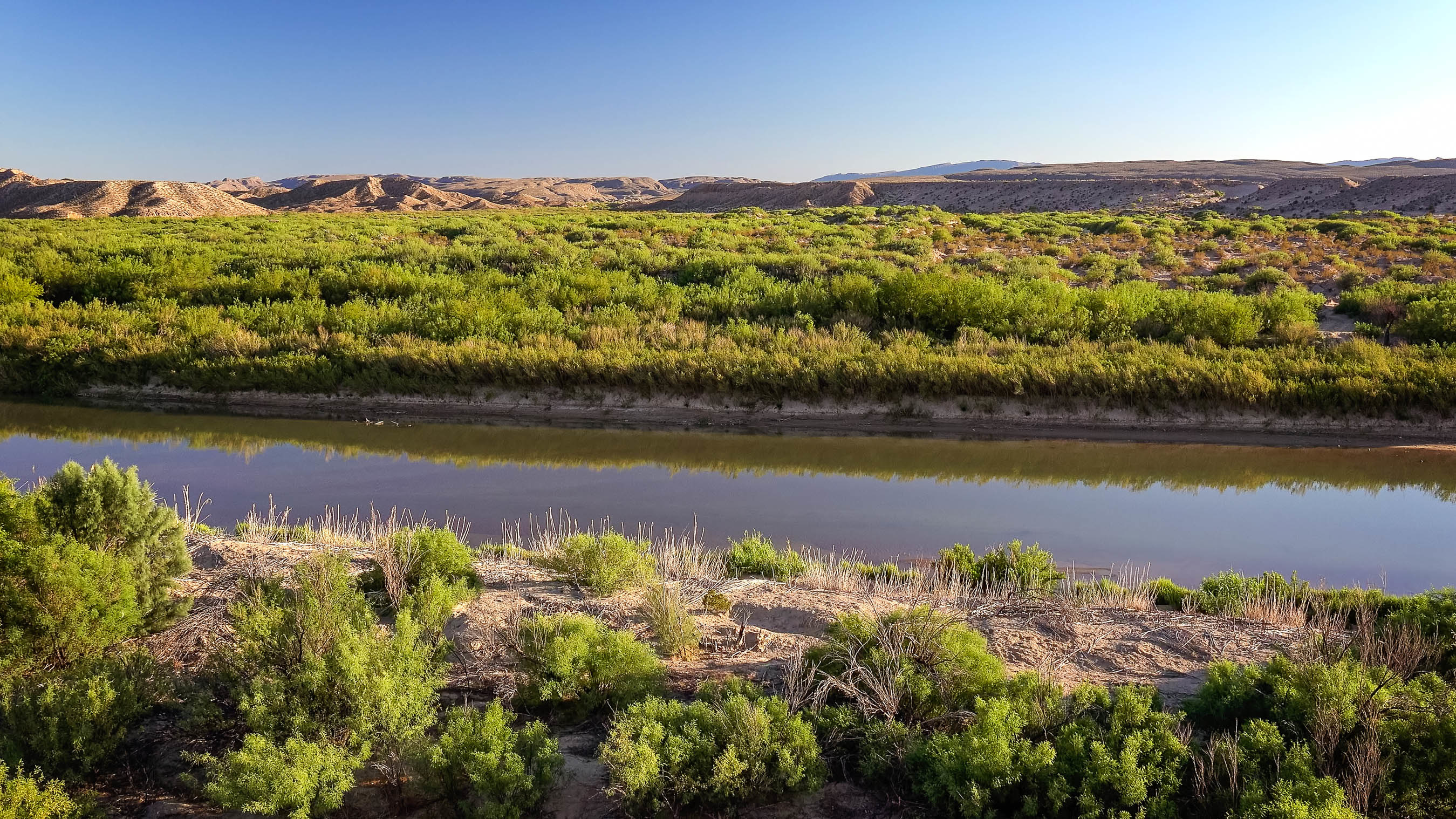The credible case for a resilient water supply in Texas

In this time of crisis and deep uncertainty, one thing we must be able to depend on is our water supply. Access to water is critical to public health, fragile local economies, and food production. And the benefits are also intangible. Confined to our homes, many of us are realizing that time spent along the banks of a lake or clear flowing creek offers much-needed respite. Now, more than ever, we must protect our water resources.
The world is a different place now than it was when I grew up in Houston in the 1980s. I have vivid memories of steamy summer thunderstorms consistently interrupting my afternoons at the neighborhood pool. My sister and I would head home and swap our swimsuits for raincoats, then stomp around muddy ditches and dig up crawdads, duct tape keeping the water out of our boots while thick warm raindrops drenched our faces.
My boys, born in 2009 and 2010 in Austin, will have very different memories. Their young lives, like Texas’s changing climate, are marked by extremes, like football games either played in dust bowls or canceled because the field has become a lake.
As my children grow up in this era defined by persistent drought, periodic floods, and now the COVID-19 pandemic, nature will continue to test the state’s best-laid plans. Like most parents, I’m concerned about my children’s future in this unparalleled time of uncertainty. It is why I have chosen a career dedicated to protecting critical water resources that provide value to communities, landowners, and nature.
EDF’s goals in Texas
The goal of the Environmental Defense Fund’s (EDF) new water program in Texas, which I have the honor of leading, is to ensure that we are managing our water resources in a balanced, sustainable way. This means considering impacts to rural communities, protecting the property rights of all landowners and building nature’s needs into the everyday business of managing water.
Initially, we will focus on developing and implementing strategies for resilient groundwater management, as groundwater is the least understood and, consequently, the most undermanaged water resource in Texas.
Groundwater is critical to Texas’s ecology and economy. It is the primary source of water for agriculture and rural landowners and communities in Texas. The rivers and streams in Texas depend on groundwater for a third of their flow. Yet the current framework for managing groundwater in Texas allows groundwater to decline over time.
Three particular issues exacerbate the complexities of effective groundwater management in Texas: law and policy that does not adequately recognize the hydrogeological connection between groundwater and surface water, the legal and regulatory challenges related to the ownership of groundwater in place, and a lack of adequate financial support for local groundwater conservation districts—effectively, the front lines of protection of these critical natural resources.

Applying EDF’s strategies to unique challenges in Texas
EDF has been a pioneer in developing innovative, economically sensible strategies to tackle similar groundwater resource challenges in the Western United States. These strategies include 1. incentivizing water resource protection, 2. strengthening data and science, 3. incorporating the needs of nature and underrepresented communities in decision making, and 4. collaborating with diverse partners to co-create solutions. These approaches are ideal for solving Texas’s unique water challenges.
For Texas to become more resilient, we must develop water supply and management strategies that are nimble, varied, and enduring. We must provide groundwater conservation districts with the tools they need to appropriately manage groundwater resources, including funding for local science. We must understand the volume of water that can be pumped from aquifers in perpetuity without causing adverse economic or ecologic impacts, and we must study (thus better understand) the connections between groundwater and surface water in river basins throughout the state.
For Texas to be resilient in the face of drought and increased growth, we must slow and eventually stop the depletion of aquifers by developing and incentivizing the use of alternative water sources and conservation practices that will reduce the demand for groundwater. We must manage our groundwater resources in ways that protect rivers and springs, Texas’s economy and our iconic rural landscapes. And we must conserve land critical to watershed health.

Encouraging landowner stewardship
Perhaps most importantly, increasing resilience in Texas means engaging diverse stakeholders, especially landowners, in the development of solutions – many of them market-based ones. My work and my life in Texas have taught me that we cannot move Texas toward resilient groundwater management without engaging landowners and protecting landowners’ property rights, recognizing the emotional connection they have to their land and water, and honoring and encouraging stewardship. For this reason, a significant component of EDF’s work in Texas will be focused on engaging and collaborating with landowners.
My husband and I recently bought land on the Blanco River outside of Austin. Watching my two boys skip rocks from the banks of the river certainly motivates me to ensure it continues to flow. I truly believe that Texas can be resilient even in the face of increased population growth and a changing climate. Texans, by nature, are a resilient bunch, who unite to solve tough, urgent challenges. And when it comes to water, Texas has many unique challenges.
Building the needs of both nature and people into our water policy and management will be vital to addressing these challenges and ensuring Texas remains, as Georgia O’Keefe remarked, the “big wonderful thing” we cherish for generations to come.
Vanessa Puig-Williams is director, Texas water program at Environmental Defense Fund, where she is leading EDF’s efforts to advance sustainable groundwater management in Texas. Vanessa is a graduate of the University Texas School of Law and has a B.A. from the University of Texas at Austin.
Editor's note: The views expressed by contributors to the Cynthia and George Mitchell Foundation's blogging initiative are those of the author and do not necessarily represent the views of the foundation. The foundation works as an engine of change in both policy and practice, supporting high-impact projects at the nexus of environmental protection, social equity, and economic vibrancy. Follow the foundation on Facebook and Twitter, and sign up for regular updates from the foundation.

Hide Full Index
Show Full Index
View All Blog Posts